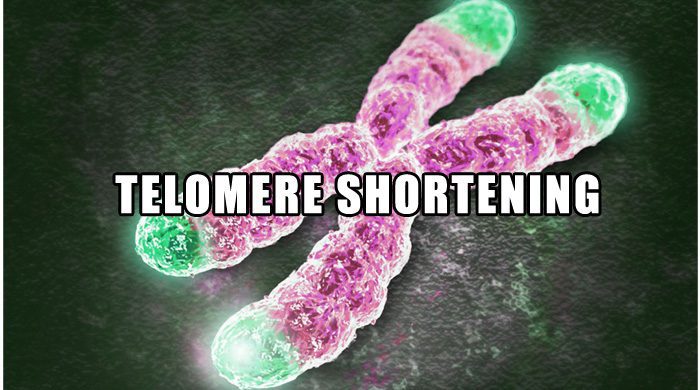Telomere Shortening

The length of the telomere shortens as people get older, but another way to look at it is the shortening of the telomere causes our cells to age and therefore causes people to age.
Telomeres naturally shorten every time a cell undergoes a process called mitosis where its DNA is copied and the cell is split into two cells containing identical DNA.
The telomere shortening is a natural process which will eventually lead to the cells inability to replicate. This process leads to senescence (the deterioration of the cell), apoptosis (programmed cell death), or the transformation of the cell into a cancer.
What is a Telomere?
A telomere is protective cap on the end of a chromosome, and is a special section of DNA the doesn’t contain genetic information. The cap of like the plastic tip of a shoelace that keeps the shoelace from fraying.
A telomere keeps the DNA that is encoded intact it keeps it from fraying and binding with other chromosomes. Each time a cell replicates the process fully copies the DNA that contains genetic information, but al small part of the cap is lost.
The telomere will become shorter after each cell division and when the telomere reaches a certain length the cell will no longer be able to divide and replicate itself.
The shortening of telomeres has a negative affect on health and the lifespan of a person, resulting in age-related diseases, cancer, and eventually death.
Slowing the Shortening of Telomeres
Lifestyle factors greatly affect the rate at which telomeres shorten and the rate cells age. Smoking, the consumption of saturated animal fat, and stress greatly increase the oxidative stress of cells, which promote the hastened shortening of telomeres.
Exercise and whole food plant-based diet has been shown in scientific studies to reduce the rate of telomere shortening.






